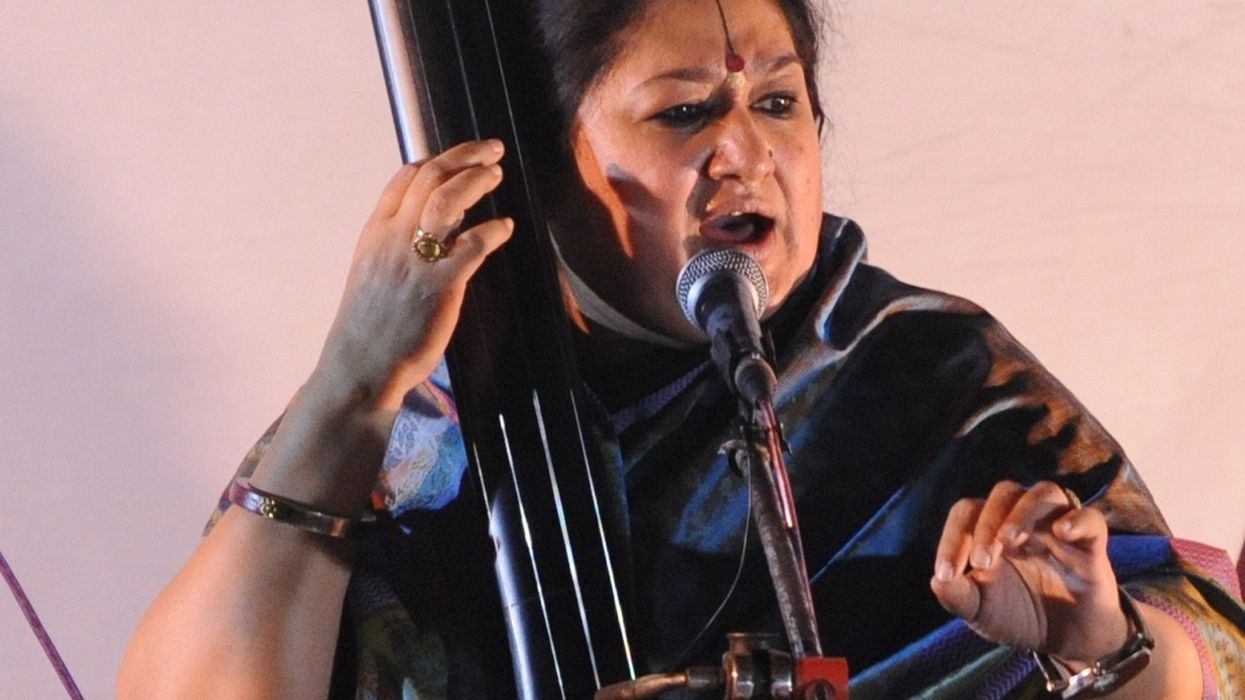Noted Hindustani classical singer Shubha Mudgal believes a good arts education programme must be made available to every school-going student in India.
The vocalist believes engaging with various art forms, including music, will make people more sensitive and lead to a more peaceful society.
"One of the main benefits of engaging with the arts, including music, is the fact that it makes you a more sensitive human being and a more sensitised person.
"Considering the violence and barbarism one sees in society today, I feel it would be a good idea that the inclusion of a good arts education programme must be made available to every school-going student in this country," Mudgal told PTI.
The singer was in the city at the invitation of Elsewhere Foundation to perform classical and traditional compositions in a concert titled 'Rang Hori'.
"I have been saying this for many decades now--in fact, formally and informally. In the longer run, it will prove to be beneficial. It will make better human beings who are better suited for society," Mudgal said.
When asked if children these days are getting exposure to the right kind of music, the Padma Shri awardee said it is difficult to gauge the quality as most of the people are listening to what is easily accessible.
"If in the two areas that are so vital to the development of a child-- the home atmosphere and the school atmosphere-- we introduce a healthy respect for the arts, why will they not learn. But that has to be done and done with the intention of teaching them to be better human beings.
"Yes, there are violent songs and we need to ensure that we point out that even though the song may be sung by a person who is an icon, we need to point out that the violence is never the way," she said.
Mudgal, 64, also stressed the need to preserve handcrafted Indian instruments such as tanpura, tabla and sarangi.
She further said there are some musical instruments made using natural elements, which have been banned now. However, no effort has been made to find substitute material.
"What material is to be used as a substitute, no thought was given to it...Tomorrow, If I have to go to Europe to buy a Tanpura, then what is the point," she said.
(PTI)




